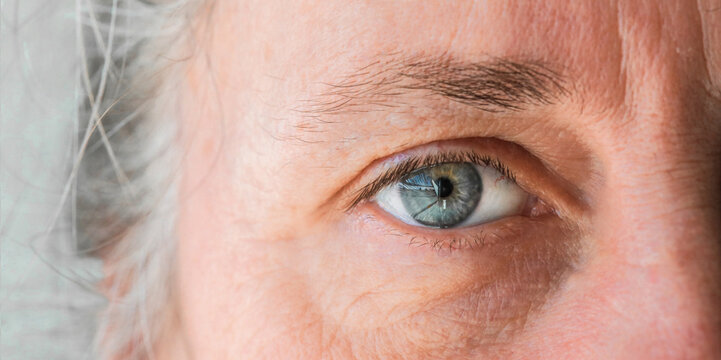
What is the Best Treatment for Glaucoma?
Aug 21, 2025
Glaucoma is one of the leading causes of irreversible blindness worldwide, often called the “silent thief of sight.” It develops gradually and damages the optic nerve, the crucial link between the eyes and the brain. Many patients do not realize they have glaucoma until the disease has advanced significantly, which is why early detection and treatment are so important. A common question people ask is: what is the best treatment for glaucoma?
The answer depends on several factors, including the type of glaucoma, how early it is detected, and how well the patient responds to treatment. Modern medicine offers multiple approaches ranging from medications and laser therapy to surgical procedures. In this article, we’ll explore in detail the available treatments, explain how they work, and provide guidance on choosing the most effective option. We’ll also highlight why advanced centers such as Vision Eye Centre are trusted for expert Glaucoma treatment in Delhi.
Understanding Glaucoma
Glaucoma is not a single disease but a group of eye conditions that damage the optic nerve. The most common cause is increased intraocular pressure (IOP), although some patients may develop glaucoma even with normal eye pressure. Over time, this damage leads to gradual vision loss.
Types of glaucoma include:
-
Open-angle glaucoma – the most common type, develops slowly without obvious symptoms.
-
Angle-closure glaucoma – less common but more severe, causing sudden eye pain and vision loss.
-
Normal-tension glaucoma – optic nerve damage occurs despite normal eye pressure.
-
Congenital glaucoma – a rare form that occurs in infants due to abnormal eye development.
Because glaucoma can progress silently, the question “is there treatment for glaucoma” becomes critical to preserving vision.
What are the Treatment Options for Glaucoma?
When patients ask what are the treatment options for glaucoma, doctors usually recommend one or a combination of therapies depending on the severity and type of glaucoma.
1. Medications (Eye Drops and Oral Medicines)
The first line of treatment for most glaucoma patients is medicated eye drops. These help lower eye pressure by either reducing the production of fluid in the eye or improving its drainage. Common classes include prostaglandin analogs, beta-blockers, and carbonic anhydrase inhibitors.
For some patients, oral medications may also be prescribed. Although they are effective, long-term use can have side effects, so eye drops remain the preferred choice.
2. Laser Therapy
Laser treatments are increasingly used as an alternative or supplement to medications. Two popular procedures include:
-
Laser trabeculoplasty – improves fluid drainage in open-angle glaucoma.
-
Laser iridotomy – creates a small opening in the iris to treat angle-closure glaucoma.
Laser therapy is quick, painless, and often done in an outpatient setting. Many patients find it easier than using drops daily.
3. Minimally Invasive Glaucoma Surgery (MIGS)
For patients who don’t respond well to drops or laser therapy, MIGS is a safe and effective option. These procedures use microscopic devices to improve fluid outflow with minimal tissue damage. Recovery time is shorter compared to traditional surgery.
4. Conventional Surgery
In advanced cases, doctors may recommend surgery such as trabeculectomy or insertion of drainage implants. These procedures create new drainage pathways to lower eye pressure. Though effective, they require careful follow-up to monitor for complications.
Lifestyle Tips Alongside Treatment
While medical treatment is crucial, lifestyle changes also play a role in managing glaucoma. Patients can protect their vision further by:
-
Attending regular eye check-ups.
-
Using prescribed medications consistently.
-
Maintaining a healthy diet rich in leafy greens and omega-3 fatty acids.
-
Exercising regularly to improve blood flow.
-
Protecting eyes from injury and avoiding smoking.
Together, these steps support medical treatments and improve outcomes.
Final Thoughts
Glaucoma is a serious but manageable condition. The key question—what is the best treatment for glaucoma—does not have one simple answer. Instead, the best approach depends on the patient’s type of glaucoma, stage of disease, and individual health needs. From eye drops to advanced surgeries, what are the treatment options for glaucoma today are varied and effective when provided under expert supervision.
For those asking, is there treatment for glaucoma, the answer is yes. While it cannot be cured, glaucoma can be controlled, and vision can be preserved with timely diagnosis and proper treatment. Advanced centers such as Vision Eye Centre offering Glaucoma treatment in Delhi are equipped with the latest technology and experienced specialists who guide patients through the most effective options. With early detection, consistent treatment, and lifestyle care, glaucoma patients can continue living full and active lives without fear of blindness.
Frequently Asked Questions
Q1: What is the best treatment for glaucoma if diagnosed early?
In most early cases, medicated eye drops are effective in controlling eye pressure and preventing progression.
Q2: Is there treatment for glaucoma that can restore lost vision?
No, lost vision cannot be restored, but treatment can stop further damage and protect remaining vision.
Q3: What are the treatment options for glaucoma if drops don’t work?
If drops are ineffective or not tolerated, laser therapy or minimally invasive glaucoma surgery (MIGS) are the next best options.
Q4: How do I know which glaucoma treatment is best for me?
The best treatment depends on the type of glaucoma, severity, and overall eye health. An eye specialist at Vision Eye Centre can recommend the most suitable option.
Q5: Is Glaucoma treatment in Delhi advanced and safe?
Yes, Delhi offers advanced diagnostic tools and modern treatments including lasers and MIGS, ensuring safe and effective care.
Q6: Can lifestyle changes help glaucoma treatment?
Yes, while lifestyle changes cannot replace treatment, they support better outcomes by improving overall eye health.

